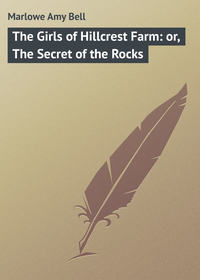Читать книгу: «The Girls of Hillcrest Farm: or, The Secret of the Rocks», страница 11
Что-то пошло не так, попробуйте зайти позже
Покупайте книги и получайте бонусы в Литрес, Читай-городе и Буквоеде.
Участвовать в бонусной программеЖанры и теги
Возрастное ограничение:
12+Дата выхода на Литрес:
19 марта 2017Объем:
210 стр. 1 иллюстрацияПравообладатель:
Public Domain
